Raspberries are extremely healthy and are now available in many supermarkets all year round. The delicious berry fruit contains valuable ingredients for the immune system. Raspberries should be bought fresh and consumed as soon as possible because they don't keep for long.
What you should know about the raspberry

Raspberries belong to the rose family and also grow very well in the gardens of Germany. In their wild form, they are native to all of Europe and Western Siberia.
Raspberries that grow in the wild, however, bear much smaller fruits than cultivated raspberries, which are mainly found in the gardens of Germany and also form the basis for the harvest, which is then offered for sale in the markets and in the grocery stores. In the meantime, raspberries have also been naturalized in many other regions of the world and also grow there, for example in Greenland, New Zealand and North America.
Raspberries were already grown in this country in the Middle Ages and also had a good reputation as a medicinal plant. As early as 1601 described Clusius (Charles de l’Écluse), a scholar, doctor and botanist from the Netherlands. different types of raspberries.
Today there are many different varieties of cultivated raspberries, which are divided into summer and autumn raspberries. Summer raspberries are basically one-time bearing varieties. After harvest, they are cut down to the ground. It's different with autumn raspberries. They usually still bear fruit well into November, and should then be cut down, but will soon sprout again. These new shoots are then not pruned. They take care of the new harvest in June. However, autumn raspberries do not bear as much fruit as summer raspberries, which only bear once, but then abundantly.
If raspberries grow in the garden or are inexpensive to get, they are good for making jam or juice. The healthy fruits are particularly effective when they are not cooked and should therefore definitely be served raw. Fresh raspberries are still available from imports in Germany in winter and ensure that the immune system remains intact during the cold season.
Importance to health
Raspberries have long been considered natural remedies and are particularly healthy. Even in Hildegard von Bingen's writings, the raspberry is already described as helpful for various ailments. The raspberry juice as well as the fresh fruits and even the leaves are full of healthy ingredients and make the raspberry a real natural pharmacy.
The raspberry is now even considered an insider tip when it comes to preventing cancer, because it stimulates the immune system like hardly any other fruit. This is due to the flavonoids it contains. To be effective, raspberries should often be served fresh, for example in the form of a dessert.
Raspberries also have a blood-purifying effect, which is due to the citric acid they contain. The raspberry is hematopoietic because the combination of iron and vitamin C in this fruit is optimal. Raspberries are also particularly rich in calcium, magnesium and potassium. These three quantity elements are generally important for health. Folic acid is one of the vitamins that is rather scarce in many foods, but not in raspberries, because they contain plenty of folic acid. Pregnant and breastfeeding women in particular have a particularly high need for folic acid and iron. Raspberries can naturally meet these needs.
Ingredients & nutritional values
100 g of raspberries are particularly low in calories with just 53 calories, but contain an abundance of vitamins, minerals and other healthy ingredients. These include 0.02 mg of vitamin B1, 0.05 mg of vitamin B2, 0.08 mg of vitamin B6, 25 mg of vitamin C, 0.91 mg of vitamin E and of minerals 170 mg of potassium, 40 mg of calcium, 30 mg of magnesium, 1 , 3 mg sodium, 1 mg iron and 0.4 mg zinc. Raspberries are also rich in flavonoids, gallotannins, ellagitannins, fruit acids and coloring glycosides, which are so important for the immune system.
Intolerances & allergies
1 to 2% of all Germans react to certain foods with a wide variety of complaints such as stomach ache, hives, asthma, itching and various other allergic reactions. These foods often include fruits and vegetables, which is why raspberries can cause intolerance and allergic reactions in certain people. Boiled and steamed, raspberries, like any form of fruit, are usually well tolerated if you have allergies, but not raw. In the case of raspberries, it is often due to the histamine or salisylic acid content if there are intolerance reactions after consumption.
Tests at the doctor's office make it easy to find out whether an allergic reaction after eating raspberries was actually caused by these fruits or whether there may be another cause.
Shopping & kitchen tips
Although raspberries are available fresh in local supermarkets all year round, most months they come from importing countries.
Domestic raspberries are primarily offered in large quantities at particularly low prices in July and August, but they are also available in smaller quantities from domestic cultivation in June and into October.During the rest of the season, raspberries are imported from abroad, sometimes from specially set up greenhouses, in which the delicious fruits have good growing conditions even in winter.
Raspberries are also offered in the form of frozen goods, raspberry jam or raspberry juice, making them another tasty alternative to fresh fruits.
Fresh raspberries should always be stored in a dry place and, if possible, consumed immediately, as they do not keep fresh for long. If that is not possible, frozen food is an alternative.
Preparation tips
Raspberries are very suitable for the preparation of desserts, cakes or fresh juices. The fresher the fruit, the better it is. They go well with yogurt, quark, pudding, ice cream and whipped cream or other fresh fruits in a fruit salad.
Raspberries are not only very healthy on a cake, they also look delicious because they add wonderful splashes of color, for example on a layer of whipped cream. The bright red fruits can be combined well with chocolate sprinkles, nut and almond chips. Coconut flakes and raspberries also have an excellent taste when mixed with whipped cream, pudding cream, yogurt and more. The inexpensive summer fruits can also be made into juice or jam.

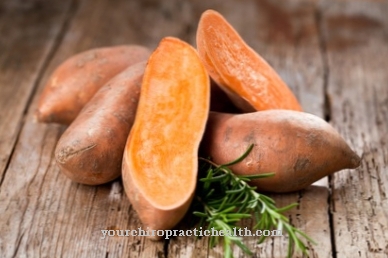
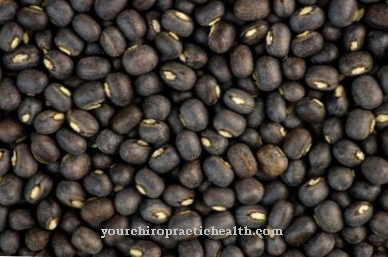
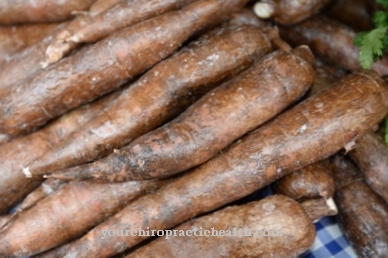
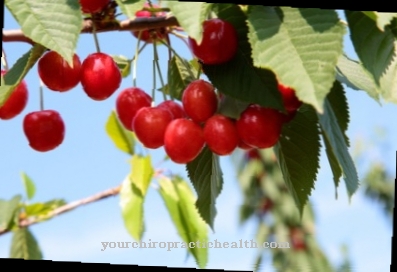
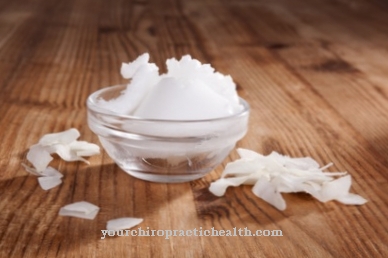
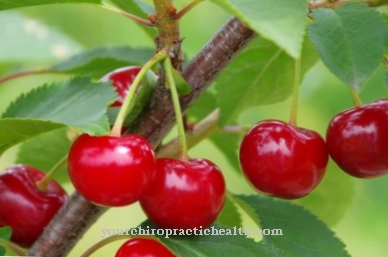






.jpg)

.jpg)
.jpg)











.jpg)